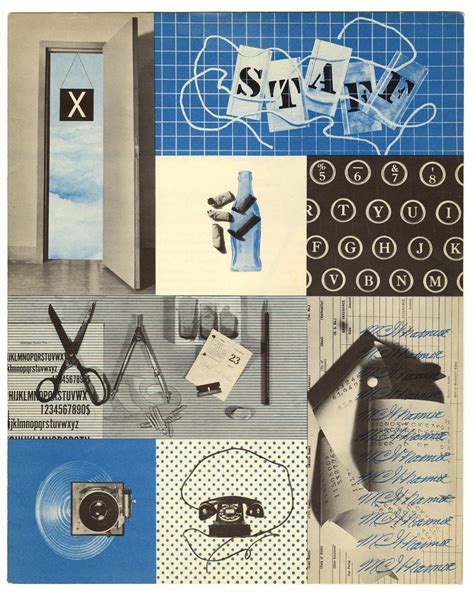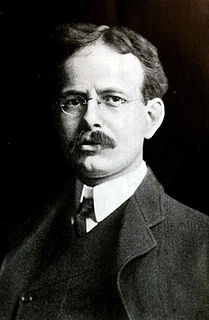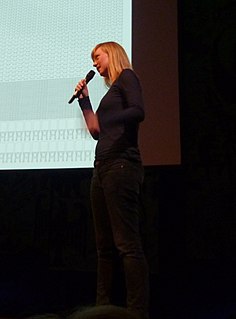Top 1200 Industrial Quotes & Sayings - Page 17
Explore popular Industrial quotes.
Last updated on November 8, 2024.
I think way back, the '20s or the '30s, when Kodak came out with the Brownie and they put a list of instructions on the box, like how to use this thing, I think someone arbitrarily said, 'Make sure the person in the photograph is smiling.' And we went from that one sort of set of industrial instructions to this whole culture of perkiness.
We have no other choice but to go on managing the conflict. We propose a stability plan: We want to strengthen the Palestinian Authority economically and establish mutual industrial zones and help them to develop independent energy capabilities, enabling the Palestinians to live their lives independently and have a future. This is where the European States should invest, not in NGOs that harm Israel.
It makes sense that we came up with our public school system during the Industrial Revolution because it's like everybody is a factory worker, eating their terrible food and going back to the room where you're silent and listening to an idiot. That's an epitomizing idea, getting called 'Nothing' for your whole high school experience.
I had the good fortune to be raised in the 1940s and the 1950s. As I entered business in the late 1950s and 1960s, America was just coming into its own as a great industrial power. It allowed young entrepreneurs to start their engines, to start their businesses, to borrow a little money and to leverage what they had.
The dichotomies, the brokenness of the culture around things like the Vietnam war, and then a lot of it has to do with war and where we put our energy and money and attention. And the military industrial complex, which dominates our whole economy. Even with the vision of democracy in other places we know the dark side.
After reading The Great Transformation by Karl Polanyi, I realized that capitalism did not naturally grow as [Karl] Marx would imply by his theory of historical materialism. People were dragged into capitalism screaming, shouting, and fighting all along the way, trying to resist this industrial and commercial world.
The greenhouse crisis is the bill coming due for the Industrial Revolution. It's not an accident. It's the logical outcome of our world view - the idea that we can control the forces of nature, that we can have short-term expedient gains without paying for them, that there are no limits to exploitation of the environment, that we can produce and consume faster than nature's ability to replenish.
By virtue of the way it has organized its technological base, contemporary industrial society tends to be totalitarian. For "totalitarian" is not only a terroristic political coordination of society, but also a non-terroristic economic-technical coordination which operates through the manipulation of needs by vested interests.
Climate change should not fundamentally be seen as a political or partisan issue, but it has been turned into a political football primarily by the climate deniers who have a vested interested in maintaining the status quo. That includes certain industrial interests, financial interests and political interests.
As regards Hillary C;inton's foreign policy actions and the powerful vested interests she seems gleefully beholden to, including all the biggest players in the military-industrial complex, I feel that she would be no better an actor on the world stage than Trump and whatever coalition of managers he might cobble together.
The prison-industrial complex, poverty, and the school system has more effect on a young black male in America than Jay-Z does, by far. And that's not a diss to Jay-Z. The crime rate in the black community was high before hip hop. Rapping about it is just a reflection of the life a lot of people are living.
We had the hardware expertise, the industrial design expertise and the software expertise, including iTunes. One of the biggest insights we have was that we decided not to try to manage your music library on the iPod, but to manage it in iTunes. Other companies tried to do everything on the device itself and made it so complicated that it was useless.
Biomimicry is innovation inspired by nature. In a society accustomed to dominating or 'improving' nature, this respectful imitation is a radically new approach, a revolution really. Unlike the Industrial Revolution, the Biomimicry Revolution introduces an era based not on what we can extract from nature, but on what we can learn from her.
The fundamental principle [of settlement work] remains: that people shall take up their residence in industrial communities, giving what they may have of public spirit, and partaking of the life about them; preserving their identity as individuals and endeavoring to keep the settlement free from the institutional form of philanthropic work. ... the relationship is reciprocal.
But look at Avatar (2009), one of the most globally viewed pieces of entertainment to have ever been made - the central emotional event of the whole movie was a tree being cut down. And the entire movie, essentially, is saying, "If we let the military industrial complex trash the place that we're living in, we will have committed an epic crime."
One of the expressions of Western over-reliance on technology can be seen in the lack of patience in industrial society. When you deal with technology, everything happens at the touch of a button. This conditions you to become so impatient that when you have an emotional or personal crisis, you don't allow time for the solution to take effect. This leads to all sorts of rash responses, like quarrels, fights and so on.
With the Industrial Revolution, the production of food was delegated to big companies in order for women and men to be in the labour force, to come home, stick something in the oven, and eat. It became a big industry that does not have a love affair with food nor is really concerned about nurturing you or giving you the right nutrition.
The climate-change industrial complex pontificates that the U.S. has to stop using coal to save the planet. But even if the U.S. cut our own coal production to zero, China and India are building hundreds of coal plants. By suspending American coal production, we are merely transferring jobs out of the U.S.
Bring down Mike Mann and we can bring down the IPCC, they reckoned. It is a classic technique for the deniers movement, I have discovered, and I don't mean only those who reject the idea of global warming but those who insist that smoking doesn't cause cancer or that industrial pollution isn't linked to acid rain.
Chekhov said: let's put God - and all these grand progressive ideas - to one side. Let's begin with man; let's be kind and attentive to the individual man - whether he's a bishop, a peasant, an industrial magnate, a convict in the Sakhalin Islands, or a waiter in a restaurant. Let's begin with respect, compassion, and love for the individual - or we'll never get anywhere.
Bring down Mike Mann and we can bring down the IPCC, they reckoned. It is a classic technique for the deniers' movement, I have discovered, and I don't mean only those who reject the idea of global warming but those who insist that smoking doesn't cause cancer or that industrial pollution isn't linked to acid rain.
The words graphic designer, architect, or industrial designer stick in my throat, giving me a sense of limitation, of specialisation within the specialty, of a relationship to society and form itself that is unsatisfactory and incomplete. This inadequate set of terms to describe an active life reveals only partially the still undefined nature of the designer.
The reductionist measure of yield is to agriculture systems, what GDP is to economic systems. It is time to move from measuring yield of commodities, to health and well-being of ecosystems and communities. Industrial agriculture has its roots in war. Ecological agriculture allows us to make peace with the earth, soil and the society.
Consider in what way the industrial system developed upon capitalist lines. Why were a few rich men put with such ease into possession of the new methods? Why was it normal and natural in their eyes and in that of contemporary society that those who produced the new wealth with the new machinery should be proletarian and dispossessed?
In industrial countries where male privilege is still firmly entrenched - in Spain, Italy, Japan, and South Korea, for example - women are delaying marriage longer than in America, and often resisting childbearing as well. They are less likely than American women to say that marriage is a good deal.
Slowly but certainly the proletarian, by every political reform which secures his well-being under new rules of insurance, of State control in education, of State medicine and the rest, is developing into the slave, leaving the rich man apart and free. All industrial civilization is clearly moving towards the re-establishment of the Servile State.
That has been the great achievement of our age: to so thoroughly flood the planet with megabits that every image and fact has become a digitized disembodied nothingness. With magnificent determination, our species has advanced from Stone Age to Industrial Revolution to Digital Emptiness. We've become weightless, in the bad sense of the word.
Government control of the economy, no matter in whose behalf, has been the source of all the evils in our industrial society -- and the solution is laissez-faire capitalism, i.e., the abolition of any and all forms of intervention in production and trade, the separation of State and Economics, in the same way and for the same reasons as the separation of Church and State.
At least since the Industrial Revolution, the world of design has been dominated by the rigors of manufacturing and mass production. Assembly lines have dictated a world made of parts, framing the imagination of designers and architects who have been trained to think about their objects as assemblies of discrete parts with distinct functions.
Human beings have the capacity to learn to want almost any conceivable material object. Given, then, the emergence of a modern industrial culture capable of producing almost anything, the time is ripe for opening the storehouse of infinite need!... It is the modern Pandora's box, and its plagues are loose upon the world.
Industrial production, the flow of resources in the economy, the exertion of military effort in a war theater-all are complexes of numerous interrelated activities. Differences may exist in the goals to be achieved, the particular processes involved, and the magnitude of effort. Nevertheless, it is possible to abstract the underlying essential similarities in the management of these seemingly disparate systems.
In the industrial world we have the problem of having more productive capacity than we know what to do with. That's at the root of the unemployment crisis: we've got so productive at making things, we don't require people to be involved in making the basics of life any more. Or nearly as many people.
Much like the fortified wine that gives Marsala its name, this tasteful hue embodies the satisfying richness of a fulfilling meal, while its grounding red-brown roots emanate a sophisticated, natural earthiness. This hearty, yet stylish tone is universally appealing and translates easily to fashion, beauty, industrial design, home furnishings and interiors.
Like buried treasures, the outposts of the universe have beckoned to the adventurous from immemorial times. Princes and potentates, political or industrial, equally with men of science, have felt the lure of the uncharted seas of space, and through their provision of instrumental means the sphere of exploration has made new discoveries and brought back permanent additions to our knowledge of the heavens.
The Second Wave Society is industrial and based on mass production, mass distribution, mass consumption, mass education, mass media, mass recreation, mass entertainment, and weapons of mass destruction. You combine those things with standardization, centralization, concentration, and synchronization, and you wind up with a style of organization we call bureaucracy.
I bought a year's production of flax from a single field owned by a Dutch producer. That's 10,000 kilograms of flax, enough to enable industrial level production. Now, I'm weaving it into tablecloths, tea towels, and other items at the Textile Museum in Tilburg. I'm producing hundreds of grown-up products!
In a way, the debate about Margaret Thatcher in Britain has just gotten fossilized in this notion that she is either this she-devil who wrecked the industrial base of the country and ruined the lives of millions, or she is the blessed Margaret who saved the nation and rescued us from our post-war decline.
We simply thought that we would be considerably poorer in Europe if we didn't have the sacred buildings of earlier epochs. It's still possible to experience the Gothic period, not to mention the Romantic. Only nothing remains of the industrial age. So we thought that our photos would give the viewer the chance to go back to a time that is gone forever.
If we must grind up human flesh and bones in the industrial machine that we call modern America, then, before God, I assert that those who consume the coal and you and I who benefit from that service, because we live in comfort, we owe protection to those men first and we owe security for their families if they die.
We are slaves in the sense that we depend for our daily survival upon an expand-or-expire agro-industrial empire—a crackpot machine—that the specialists cannot comprehend and the managers cannot manage. Which is, furthermore, devouring world resources at an exponential rate. We are, most of us, dependent employees. …Edward Abbey (1927-1989)
It was the first time I was looking, really, right after the storm, that I saw maybe the amount of devastation that had happened in the Lower Ninth Ward. Where my friends lived, which was about six blocks from where the industrial canal was, houses was smashed into houses, and there were, like, four houses smashed together.
























































